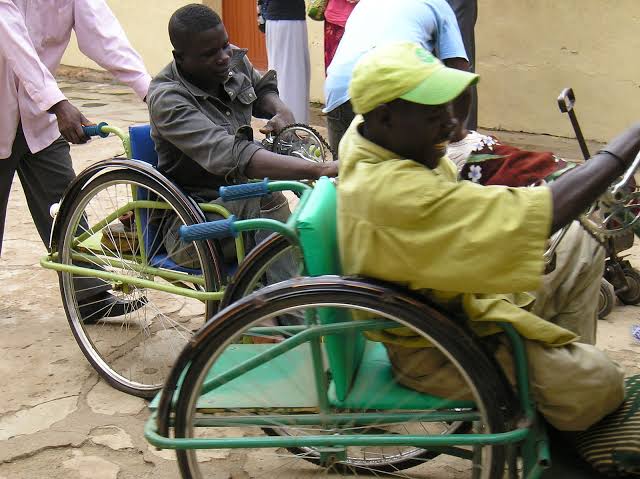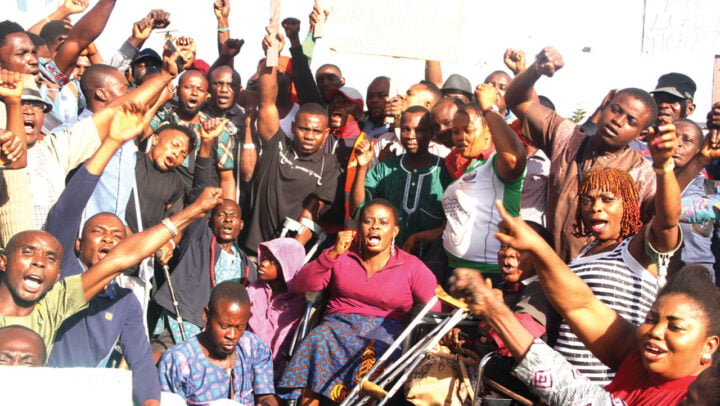File photo of PWDs
The Delta government says it has paid for health insurance for 250 people with disabilities (PWDs) in the state.
Isaac Akpoveta, the director-general (DG) of the Delta State Contributory Health Commission (DSCHC), announced the development on Thursday.
The DG spoke when he received members of the Joint National Association of Persons with Disabilities (JONAPWD) at the commission’s office in Asaba, the state capital.
He said the beneficiaries consist of 10 PWDs drawn from each of the 25 LGAs in the state.
Advertisement
Akpoveta said the gesture will enable the beneficiaries to have access to quality healthcare services and be protected from the high cost of medical care.
“Through initiatives like the Indigent Enrollee Adoption Initiatives, Artisans Enrollee Inducement Initiatives, and TISHIP, the Delta State Health Insurance Commission strives to break down barriers and create a more inclusive healthcare system that caters to the diverse needs of the population,” he said.
“We acknowledged the unique challenges faced by persons with disabilities, including social stigma, discrimination, and limited access to essential services.
Advertisement
“It is the collective responsibility of citizens to challenge such barriers and create an inclusive society that respects and values the contributions of every citizen.
“I want to reaffirm the commission’s commitment to ensure their inclusion, support and equal opportunities within society.
“In this pursuit, the Delta State Contributory Health Commission law of December 2019, has taken significant steps to ensure that individuals with disabilities receive the quality healthcare they deserve.
“The Equity Health Plan, as stated in section 18, subsection I (a) of the law, recognises the vulnerable, which includes pregnant women, children under five (5) years, the elderly over 65 years of age, the physically and mentally challenged, and others.”
Advertisement
Add a comment






